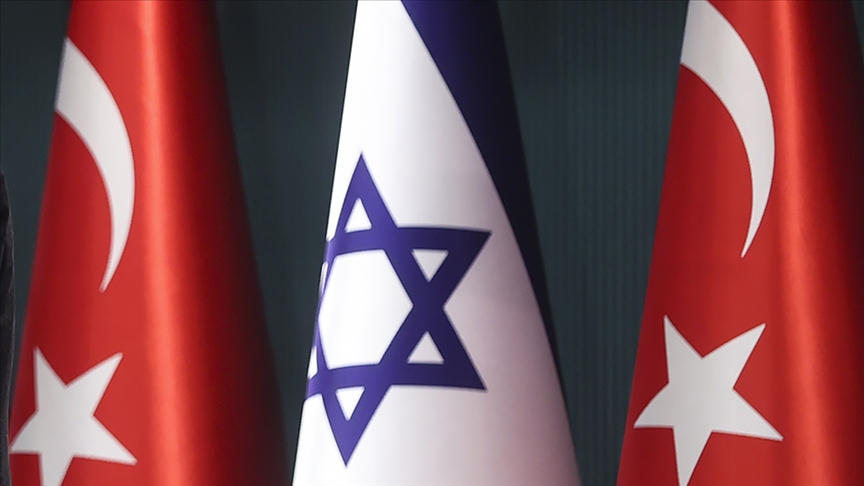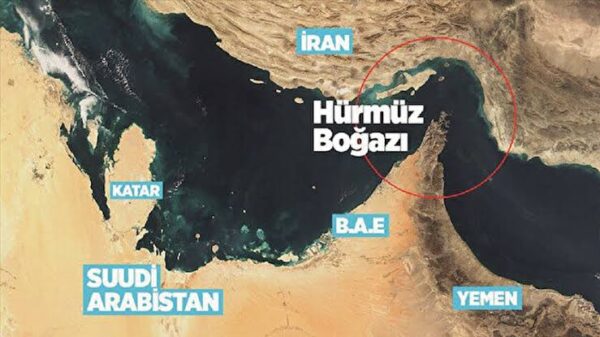The “monopoly on violence” that Max Weber counted as a basic condition of statehood has, like all other international law concepts, begun to be interpreted more liberally, leading to the emergence of a new actor on battlefields. These structures, called military companies or military contractors, fight for the purposes of those who finance them, like the mercenary knights of Medieval Europe offering their swords to the service of their lord. The emergence of private military companies has brought along many ethical discussions as well as legal disputes.
Military Companies in General
The monopoly on violence, considered one of the foundations of the modern state, has begun to be loosened with the liberalization of the state concept and private enterprise becoming fundamental in the economy, resulting in the transfer of some, if not all, functions of armies to military companies that act as mercenary armies.
Although countries’ regular armies continue to exist in general, military companies have mostly served as subcontractors in various areas, from undertaking secondary duties in battlefields to performing difficult tasks. The most intensive use of military companies occurred when the American Army, following its intervention in Iraq, transferred secondary obligations such as protecting oil wells, pipelines, American Consulates, various logistics and civilian centers to some military security companies, primarily the famous Blackwater USA company, during the subsequent military occupation period.
However, these military companies, especially the Blackwater company, brought along the responsibilities of their employer states. Scandals such as Blackwater company’s actions against civilians and subsequently Blackwater company’s weapons being reported as “lost” and appearing in PKK terrorist organization’s inventory have complicated the United States’ foreign relations.
Private military companies, which are also used as a front for tasks such as training irregular armies or rebel forces rather than combat duties on battlefields, have begun to be demanded by various states as new actors in 21st-century proxy wars.
SADAT, established to train the forces of new moderate regimes and anti-regime forces that emerged immediately after the Arab Spring in Turkey, has also taken its place among active military companies in the world as a Turkey-based military company.
Legal Status of Military Companies
Although there is no direct legal regulation about military companies, it is obvious that they are subject to the legal status of mercenaries. In 2007, the United Nations Human Rights Commission defined private military companies as “a type of mercenary” and designated them as “illegal combatant elements” according to the Geneva Convention’s main lines, prohibiting their use on battlefields. Despite this, the United States declared that it did not recognize this decision published as a report by the United Nations.
However, the United Nations has also demonstrated through practical application that there is no legal obstacle to private military companies providing services in areas such as facility protection and rear-line services by using them in non-combatant duties like subcontractors in peacekeeping missions.
International law first regulated mercenaries in Article 47 of Additional Protocol I to the Geneva Convention. At the conference convened to determine prisoner of war rights, mercenaries were defined and decided to be deprived of prisoner rights.
According to Article 47 of Additional Protocol I to the Geneva Convention, mercenaries are:
(a) Recruited locally or abroad to fight in an armed conflict,
(b) Who does take a direct part in hostilities,
(c) Who is motivated essentially by the desire for private gain and is promised material compensation substantially in excess of that promised or paid to combatants of similar rank and functions in the armed forces of the party they are serving,
(d) Who is neither a national of a party to the conflict nor a resident of territory controlled by a party to the conflict,
(e) Who is not a member of the armed forces of a party to the conflict,
(f) Who has not been sent by a State which is not a party to the conflict on official duty as a member of its armed forces.
State Responsibility for Actions of Military Companies
If we start from the fundamental principles of international law, which are the basic sources of state law, it can be said that from a private law perspective, there is a hybrid legal relationship between the state and private military company with various elements of both subcontractor relationship and employer-employee relationship coming together. In any case, when considering the concepts of “employer’s responsibility for employee actions” and “principal contractor’s responsibility for subcontractor actions,” it’s not difficult to say that the state is responsible for all actions of private military companies.
The first document regarding military companies is the 1989 United Nations Convention against Mercenaries. This convention explicitly prohibits the use of private military companies. As of 2017, this convention has been ratified by 35 states. However, in our opinion, it is difficult to speak of the existence of customary law due to its non-signature by states with large armies, including all UN Security Council members.
The doctrine favors applying the provisions related to “irregular forces” (or paramilitary) in the Geneva Convention analogously to mercenaries. Accordingly, irregular forces are legitimate only as long as they are bound to a “responsible command structure” affiliated with the state they fight for. This point is an important criterion for holding states responsible for the actions of irregular forces they use. The doctrinal view based on this argues that military companies are subject to the rules of war depending on their status within the military hierarchical structure of the employer state and that these structures can be legitimately used on battlefields.
However, it has concluded that states can still be held responsible for the actions of these persons if it is concluded that irregular units or mercenary companies that are not always in a “de jure” hierarchical structure have a relationship with a state as if there were at least a legal relationship in fact (de facto). The decision of the Former Yugoslavia War Courts is fixed on this matter. This responsibility is not only criminal responsibility but also includes states’ legal responsibilities as direct or indirect aggression.
For example, in the Nicaragua Case, the United States’ arming and training of contra-guerrilla forces in Nicaragua as if there were an official connection, along with intelligence agencies deciding war strategies, revealed a command relationship that resulted in the conclusion that the United States had conducted an “indirect attack” on Nicaragua.
From this perspective, the employment of military companies by the employer state for achieving a purpose requires the attribution of both criminal and international responsibility to the employer state. Moreover, because military companies are “companies,” they have a much stricter and more rigid organizational chart compared to ordinary paramilitary structures and create a broader area for imposing responsibility on the employer state.
In this context, the doctrine draws attention to the distinction between paramilitary, volunteer force, and military company, and unlike paramilitary structures, professional soldiers who fight for an ideal even though they receive support from a state for their work are considered volunteer forces rather than mercenaries. For example, German and Italian soldiers fighting alongside nationalist forces in the Spanish Civil War (see Legion Condor) are classified as volunteers rather than mercenaries.
Russian Private Military Companies
Countries with power in world politics often participate in hot wars through proxy forces. Sometimes these proxy forces are volunteer groups, and sometimes they are paid military companies. As such, Russia, one of the permanent members of the UN Security Council, utilizes proxy forces in both ways.
Russia’s use of military companies on the battlefield first began with intervention in the Syrian Civil War. Russia, which intervened in the war alongside the Damascus regime, frequently deployed military companies to the battlefield to fight both anti-regime rebels and terrorist organizations like ISIS.
The military companies that Russia utilizes in wars mostly operate registered in a country’s trade registry outside Russia. While the Wagner Group operating in Ukraine and Syria is an Argentina-based company, the Slavonic Corps is based in Hong Kong. Another military company, Turan, established to recruit mercenaries from Turkic peoples and whose logo is Timur’s flag, is estimated to be headquartered in Kyrgyzstan, though there is no clear information on this matter.
Although the companies that the United States receives services from are structures that emerged as a result of free enterprise, the connections of many companies that Russia receives services from are suspicious. This company is also designed with very specific ideological motives, and their ultimate goal is to work only with Russia.
Slavonic Corps and Wagner have employed Neo-Nazi groups as mercenaries from countries such as Serbia, particularly from former Yugoslav geography, Belarus, Germany, Hungary, Romania, and Spain. Russia, influencing not only the extreme right but also the extreme left, has particularly had extreme left participation from Spain to Wagner for fighting for the Donbass Revolution among extreme leftist/communist youth in various countries.
Although Russia turns a blind eye to these companies opening liaison offices and recruiting warriors in its own country, Russian Criminal Laws have tied being a paid warrior to 15 years imprisonment and detains warriors who return to their countries before the war is completed at the airport and subsequently prosecutes them under arrest.
Russia, which extensively uses military companies in its proxy war in Ukraine, has often encouraged military companies to fulfill certain duties in Ukraine when it cannot recruit volunteer nationalists to fight in separatist ranks.
In recent years, Wagner has begun to operate in various African countries besides Syria and Ukraine. Particularly based on the extensive Russian influence in the Central African Republic, they have adopted this country as their center in Africa and begun activities in various countries. However, the definition and scope of these activities are not fully known.
Occupation Task for Military Company
While theoretically private military companies could only be employed in rear-line services, a military company was given an occupation task in Russia’s first attack on Ukraine. As a result of the investigation initiated by the Ukrainian Central Prosecutor’s Office following “pro-Russian activities” that began in Crimea after the Euromaidan protests and subsequent regime change in 2014, it was concluded that the soldiers known publicly as “little green men” were mercenaries affiliated with private military companies.
Little Green Men consisted of approximately 500 people and were the name given by the public to groups claimed to be “Russian soldiers” who appeared on the peninsula when separatist voices were rising in Crimea, capturing airports and government buildings and besieging Ukrainian military bases in Crimea. It appears that if the Ukrainian Prosecutor’s allegations are accepted as true, the Russian Federation has assigned an occupation and annexation task to a military company. This situation is undoubtedly very important for the history of military companies. Because for the first time, a military company was used as the main force in occupying a country rather than “secondary obligations.”
As a result of the Russian Army’s failure to show expected success and increasing losses in Russia’s attempt to fully invade Ukraine, Wagner was deployed to the field and used completely as a combat force on the front line rather than rear-line service. Wagner, which acted as an independent military company on the field until the Wagner rebellion in June 2023, was liquidated as a result of the rebellion and attached to the Russian National Guard.
Ukraine, on the other hand, after long efforts, made the Azov Regiment, which was established in the first days when separatist activities began, a part of the Ukrainian Territorial Defense Forces Command, making it part of the regular army. Ukraine, which called for mercenaries worldwide with Russia’s large-scale invasion move, assigned the mercenaries it employed in its country within units attached to the regular army’s Territorial Defense Forces Command rather than through a company.
Conclusion
The use of military companies, which is a controversial and new concept in International Law, sometimes brings along discussions about human rights and sometimes creates discussions about the basic use of force and armed attack provisions of international law.
Until now, human rights violations committed by the Blackwater company, which undertook secondary obligations in the conflict field as a subcontractor of the American Army, were being discussed. The concept created by Blackwater and similar companies, which emerged as a result of completely private enterprise and did not hide their official legal connection with the American Army, has today been turned into an instrument for proxy wars by Russia.
In a way, as a reflection of the “State Capitalism” system represented by Russia in the military field, all military companies connected to Russia were established with the implicit support of the Russian state to carry out Russian state’s overseas missions. Russia, challenging the international system with the understanding of “New Rules or No Rules,” hits the west with its own weapon by including military companies in the wars in Ukraine and Syria, just as it exploits and uses many areas that are the fruit of the international system in its own direction.
The status of military companies, which are the descendants of mercenary knights who were the main forces of wars in the Middle Ages before the permanent regular army in the Modern Age, will be discussed more and even new regulations will be made. However, they will always inevitably reflect the structure of the employer state within the company.











